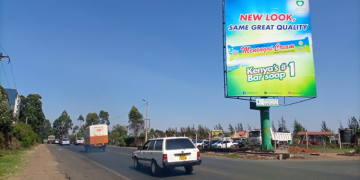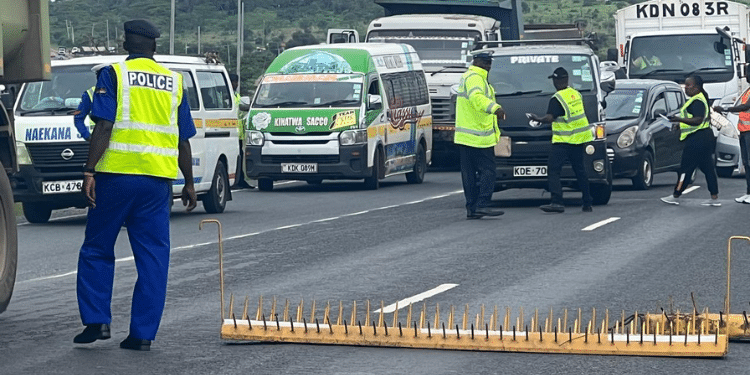The National Transport and Safety Authority (NTSA) has issued an urgent safety warning to schools and motor vehicle owners ahead of the country’s school reopening.
Through its Operation Watoto Wafike Salama campaign, the authority outlined a checklist that schools must observe when using vehicles to transport pupils.
Schools have been directed to ensure that all vehicles are roadworthy, fitted with safety belts, and driven by qualified drivers.
NTSA further emphasized that drivers and conductors must not be under the influence of alcohol while on duty and that speed limiters must be functional at all times.
In addition, schools are expected to supervise and monitor driver conduct and ensure buses or vans follow the correct routes.
NTSA stressed that the safety of learners is a collective responsibility, urging school heads to comply fully with the outlined measures to prevent avoidable road accidents.
“Our children need to get to school safely,” NTSA said in its statement.
Earlier the authority had directed all players in school transport operations to ensure the vehicles that will be used to carry children back to school are mechanically sound.
“From random compliance checks and analysis of reports on inspection of school transport vehicles, we have observed major safety concerns,” NTSA said.
NTSA noted that some school transport vehicles had not installed speed limiters, while others operated with non-serviced (expired) speed limiters, contrary to the requirements of KS 2295:2018.
“In addition, the safety noted that some of the installed speed limiters did not transmit data to the NTSA Intelligent Road Safety Management System (IRSMS).
According to NTSA, the list of licensed speed limiter suppliers in Kenya is available on the NTSA website.
NTSA Issues Directive on School Transport Safety Ahead of Reopening
At the same time, the authority revealed that substandard interior conditions, featuring worn-out upholstery (ripped seats), unstable cushions, torn or jagged seat edges, malfunctioning door locks, and faulty sliding rails in the vehicles were observed during the checks.
Some of the vehicles, NTSA added, lacked seat belts, while in others, the seat belts and buckles were defective.
On concerns with KS 372:2019 compliance, NTSA noted that several vehicles had poor seat anchorage, lacked anti-roll bars that are crucial for the stability of the vehicle, while others had no VIN plate.
“The standard guides that motor vehicles must be constructed by approved body builders and assessed by approved conformity assessors,” NTSA added.
“NOTE: The list of the approved body builders and conformity assessors is available on the NTSA website (www.ntsa.go.ke).
Also Read: Govt to Use Trackers in Long-Distance Trucks; How They Will Boost Road Safety
Another concern noticed was poor exterior body condition, including corroded chassis and vehicle bodies.
The authority revealed that certain vehicles exhibited faulty suspension (worn shock absorbers) and defective steering systems (worn tie rods).
At the same time, NTSA made an urgent appeal to motor vehicle owners to perform routine maintenance and service their vehicles to identify and address potential problems.
“Taking cognizance of the risks posed by unroadworthy vehicles on our roads, we urge motor vehicle owners to perform routine maintenance and service their vehicles to identify and address potential problems,” NTSA stated.
“This will help minimize the risk of a road traffic crash because of mechanical failures.”
Also Read: NTSA Responds to Audit Claim of Having No Control of Ksh186M TIMS Portal
NTSA Reveals 315,000 Vehicles Operating Without Valid Inspection Certificates
The regulatory authority disclosed that, from its systems, it has flagged 315,000 public service vehicles and commercial vehicles (tare weight 3,049 Kgs and above) operating without valid motor vehicle inspection certificates, and all the owners have been notified to undertake immediate remedial measures.
NTSA Director General urged law enforcement officers to use the free NTSA mobile app to verify the validity of inspection certificates and take necessary action.
Additionally, members of the public were requested not to board or allow school children to be transported in unroadworthy vehicles.
“Road safety is a shared responsibility, and if all road users actively participate in creating a safer environment, we can all contribute to reducing fatalities and injuries on our roads,” NTSA noted.
Follow our WhatsApp Channel and X Account for real-time news updates.












































































